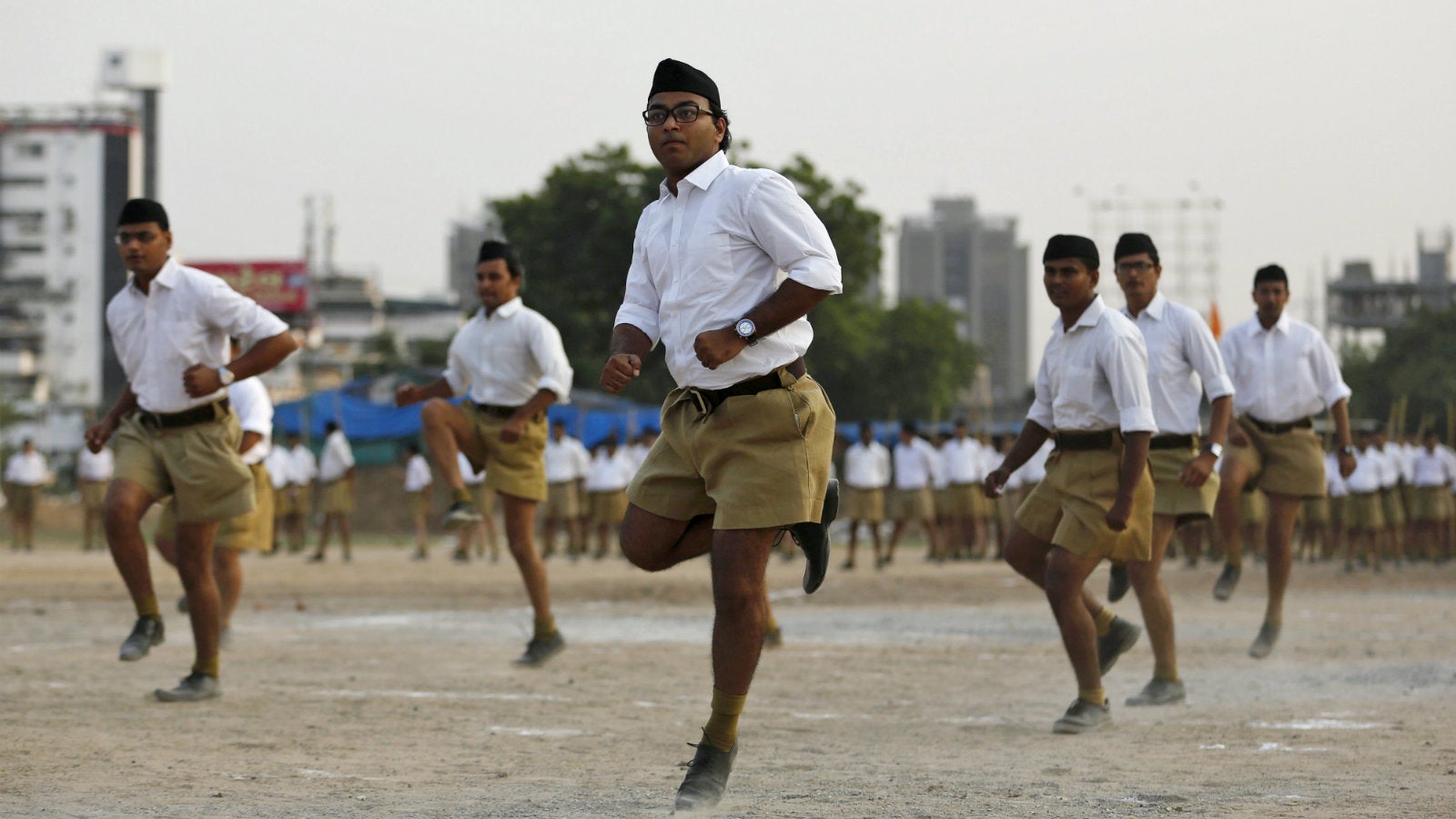Hindutva headquarters changes shorts and stripes, wants homosexuality decriminalised
The Rashtriya Swayamsevak Sangh (RSS)—the ideological fountainhead of most Right-wing Hindu political and social outfits in India, including the ruling Bharatiya Janata Party (BJP)—has signalled a marked shift in its attitude towards homosexuality.


The Rashtriya Swayamsevak Sangh (RSS)—the ideological fountainhead of most Right-wing Hindu political and social outfits in India, including the ruling Bharatiya Janata Party (BJP)—has signalled a marked shift in its attitude towards homosexuality.
A senior RSS functionary, Dattatreya Hosabale, said on March 17 that as long as they don’t impinge on others’ lives, sexual preferences cannot be a crime. “Why should the RSS have an opinion on homosexuality? It is not a crime as long as it does not affect the lives of others. Sexual preferences are personal issues,” Hosabale, a joint general secretary of the organisation, said at an event in New Delhi.
However, on Friday (March 18), Hosabale muddied the waters again with a few tweets.
These remarks left observers confounded as to whether it was a tactical retreat from the RSS’s newfound openness or a considered move to stay ambivalent.
In India, consensual sexual acts of lesbians, gays, bisexuals and transgenders, even in private, are deemed criminal offences under section 377 of the Indian Penal Code—a law that dates back to 1860.
While India has debated sexual preferences for a while now, the subject assumed certain urgency in the past few years, particularly after the Delhi high court, in July 2009, ruled in favour of junking the regressive section and decriminalising homosexuality.
However, following an appeal in the supreme court, the Delhi high court’s ruling was overturned in December 2013. India’s highest court said that changing such a law was the prerogative of parliament.
In parliament, attempts to amend the law have met with stiff resistance. Just last week, the Lok Sabha voted against even the introduction of a private member’s bill. This was the second time in recent times that the said member, the Congress party’s Shashi Tharoor, had sought to introduce—unsuccessfully—a bill to such effect.
While prime minister Narendra Modi of the BJP, who came to power in May 2014, has maintained a studied silence on the issue, the RSS itself is not exactly known to be a torchbearer of liberal values.
On Feb. 2 this year, however, India’s supreme court decided that it would reconsider its stand on section 377, raising hopes among several quarters.
RSS and BJP
In 2013, Rajnath Singh, India’s current home minister and the chief of the BJP back then, had said, “If an all-party meeting is called, we will support section 377 as we believe that homosexuality is an unnatural act. We cannot support it.”
The RSS’s view was aligned to the BJP’s, but a little more nuanced.
“(Section) 377 is about unnatural relationship. There can be a debate over the section as proposed by the BJP,” Ram Madhav, who was with the RSS then, said on Twitter. In May 2014, Madhav again said, “As for section 377, let us see what stand the government takes on this issue. But I can say this—that while glorification of certain forms of social behaviour is not something we endorse, the penalising and criminalisation aspects need to be looked into. Whether to call homosexuality a crime and treat it as one in this day and age is questionable.”
The RSS, which has often been accused of harbouring and encouraging regressive social views, has of late tried to reinvent itself to appeal to a younger generation. Last week, it dropped its iconic khaki baggy shorts, replacing it with full-length trousers. Coming after nine decades, this was a much talked-about sartorial change.
Of late, senior members of the BJP, too, have begun speaking out against section 377. ”When you have millions of people involved in this (gay sex), you can’t nudge them off,” India’s finance minister Arun Jaitley said in November 2015. ”Jurisprudence world over is evolving, I think the judgment was not correct and, probably at some stage, they may have to reconsider.”